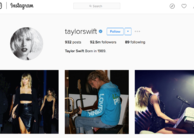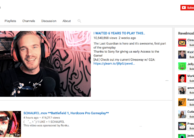From Elon Journal of Undergraduate Research in Communications VOL. 4 NO. 2The Construction of Southern Identity Through Reality TV: A Content Analysis of Here Comes Honey Boo Boo, Duck Dynasty and BuckwildReality TV & Artistic SacrificeOne issue inextricably bound to reality television is the criticism that it has departed from "quality" programming or earlier modes of observational documentary. It has been widely argued that reality television is representative of "trash" culture and some have even gone so far as to say that it is playing an active role in making Americans as a whole, less intelligent. Scholar Junhow Wei conducted an ethnographic study at a reality television production company called Sunshine productions. Through fieldwork, which included observation but also in-depth interviews with employees, Wei uncovered the struggle that workers in this industry face when producing these shows. Wei found that workers struggle to maintain and often have to sacrifice their "artistic integrity" when producing these shows, which ultimately do not meet their standards of artistic quality. Wei spent time with workers, was included in several planning meetings and parties, and also conducted several personal interviews where workers openly expressed frustrations. In one interview, a worker stated: Well, I think that every single shot is based on will it have an impact on the buyer. Will it make—every single thing is based on is the buyer going to look at it and think, "Cool, I like that." It has nothing to do with my emotions or anybody's emotions. It has everything to do with is the buyer going to sit there and have a reaction to it, because otherwise you're wasting your time. 19 Many employees expressed that "heightened drama" along with "larger than life characters" are more appealing to buyers and viewers, thus producers and editors are pressured to manipulate situations to heighten entertainment value, even at the perhaps ethical cost of skewing reality. From a wealth of footage, producers and editors are forced to construct a kind of narrative or storyline. Because of the market pressures to create "sellable" entertainment, these decision-makers are likely to position footage in a way that creates the most entertainment value. While Wei was on location filming a sizzle reel for a reality show called Riders, a show about a traveling carnival company, he had an interesting interaction with one of the junior level development associates who was clearly reluctant to focus on the dirty, ramshackle living quarters of the carnival workers. When Wei asked the employee why he felt this way, his grave response was "Well, that's not really the truth." He explained to Wei that he did not want to continue to perpetuate negative, inaccurate stereotypes about the carnival workers. Viewer Involvement and Feelings of IdentificationSeveral scholars argue that the nature of reality television causes viewers to feel as though they are thoroughly involved in the lives of reality TV subjects. Some scholars have argued that because these programs invite viewers to become involved in the lives of ordinary people, there is an increased level of identification with the subjects in both mental and emotional ways.20 The danger in this, of course, is that with the increase in feelings of identification, there may also be an increase in viewers' perceptions of reality. If viewers assume that they know the characters, they may potentially forget what could be staged events. They may also forget the good possibility that subjects may be acting a certain way because producers have encouraged them to act in this way or "play up" certain behaviors. Quoting Jaffe (2005), who wrote, "It is a significant issue for viewers to be lulled into a belief in something so artificially constructed, " Coyne, Robinson and Nelson note in their article on relational aggression in reality television.21 VIII. ConclusionAs the findings of this study suggest, our persistent and curious infatuation with reality television is dangerous because it continues to perpetuate the negative stereotypes associated with the people of the American South. Unintelligent, crude and violent behavior manifested itself across all shows under observation in this study. Through industry pressures to create entertainment, producers are forced to construct individual and cultural identities that are perhaps not representative of reality. The nature of reality television allows an artificial sense of closeness to the characters. This prevents a critical and analytical study of the show and thereby allows stereotypes to proliferate unchallenged. We are consuming without thinking. We are laughing without reflecting. We are exploiting a segment of society at the expense of real understanding and in the process, relegating an entire cultural community to a singular distorted vision. AcknowledgmentsThis author is thankful to Dr. David Copeland at Elon University for his guidance and supervision, without which the article could not be published. ReferencesAndrejevic, Mark. Reality TV: The Work of Being Watched. Lanham, Maryland: Rownman & Littlefield Publishers, Inc., 2004. Carter, Bill. "Reality TV Once Again Dominates Summer Ratings," New York Times, Last modified September 13, 2010, http://www.nytimes.com/2010/09/13/business/media/13reality. Catlin, Roger. "Reality TV's explosion of Southern stereotypes." The Washington Post. Last modified June 7, 2012. http://articles.washingtonpost.com/2012-06 07/entertainment/35460112_1_american-hoggersturtleman-swamp-people. Coyne, Sarah, Simon Robinson and David Nelson. "Does Reality Backbite? Physical, Verbal, and Relational Aggression in Reality Television Programs." Journal of Broadcasting & Electronic Media 54 (2010): 282-298. Deggans, Eric. "Disappointing 'Redneck' TV Shortchanges The American South." National Public Radio. Last modified December 7, 2011. http://www.npr.org/blogs/monkeysee/2011/12/07/142861568/disappointing-redneck-tv-shortchanges-the-american-south. Denham, Brian and Richelle Jones. "Survival of the Stereotypical: A Study of Personal Characteristics and Order of Elimination on Reality Television." Studies in Popular Culture 30 (2008): 79-113. Dubrofsky, Rachel. The Surveillance of Women on Reality Television: Watching The Bachelor and The Bachelorette. Lanham, Maryland: Lexington Books, 2011. Filoteo, Janie. "Placing Reality TV in the Cultural Spectrum: Making a Case for Studying the World of Reality Television," (paper presented at the annual meeting of the American Sociological Association, Philadelphia, Pennsylvania, August 13-16, 2005), 1-18. Gartman, David. "Bourdieu and Adorno: Converging theories of culture and inequality." Theory & Society 41 (2012): 41-72. Godlewski, Lisa and Elizabeth Perse. "Audience Activity and Reality Television: Identification, Online Activity, and Satisfaction." Communication Quarterly 58 (2010): 148-169. Hellmich, Nanci. "Southerners, poor have highest rates of obesity." USA Today. Last modified July 8, 2011. http://yourlife.usatoday.com/fitness-food/diet-nutrition/story/2011/07/Southerners-poor-have-highestrates-of-obesity/49173468/1 Hill, Annette. Reality TV Audiences and Popular Factual Television. London: Routledge, 2005. Huff, Richard. Reality Television. Westport, Conn.: Praeger Publishers, 2006. Kraszewski, Jon. "Country Hicks and Urban Cliques: Mediating Race, Reality, and Liberalism on MTV's The Real World." In Reality TV: Remaking Television Culture, ed. Susan Murray and Laurie Ouellette. New York: New York University Press, 2004. Leopold, Todd. "The South: Not all Bubbas and banjos." CNN. Last modified April 14, 2012, http://edition.cnn. com/2012/04/14/us/bubba-southern-stereotypes Lewis, Justin. "The Meaning of Real Life." In Reality TV: Remaking Television Culture, ed. Susan Murray and Laurie Ouellette. New York: New York University Press, 2004. Montemurro, Beth. "Surveillance and Power: The Impact of New Technologies on Reality Television Audiences." (paper presented at the annual meeting of the American Sociological Association, New York, New York, August 11-14, 2007): 1-22. Rawls, Kristin. "The Media's Southern Stereotypes." Salon.com. Last modified April 4, 2012, http://www.salon. com/2012/04/04/the_medias_southern_stereotypes/. Slocum, Charles. "The Real History of Reality TV Or, How Alan Funt Won the Cold War." Writers Guild of America, n.d. http://www.wga.org/organizesub.aspx?id=1099. Wei, Junhow. "Dealing With Reality: Market demands, artistic integrity, and identity work in reality television production." Poetics 40 (2012): 444-466. Endnotes1. Charles Slocum, "The Real History of Reality TV Or, How Alan Funt Won the Cold War," Writers Guild of America, n.d, http://www.wga.org/organizesub.aspx?id=1099 (15 March 2013). 2. Bill Carter, "Reality TV Once Again Dominates Summer Ratings," New York Times, last modified September 13, 2010, http://www.nytimes.com/2010/09/13/business/media/13reality.html?_r=0 (15 March 2013). 3. Janie Filoteo, "Placing Reality TV in the Cultural Spectrum: Making a Case for Studying the World of Reality Television," (paper presented at the annual meeting of the American Sociological Association, Philadelphia, Pennsylvania, August 13-16, 2005), 6. 4. Eric Deggans, "Disappointing 'Redneck' TV Shortchanges The American South," National Public Radio, last modified December 7, 2011, http://www.npr.org/blogs/monkeysee/2011/12/07/142861568/disappointing-redneck-tv-shortchanges-the-american-south (4 April 2013). 5. Roger Catlin, "Reality TV's explosion of Southern stereotypes," The Washington Post, last modified June 7, 2012, http://articles.washingtonpost.com/2012-06-07/entertainment/35460112_1_american-hoggersturtleman-swamp-people (6 April 2013). 6. Justin Lewis "The Meaning of Real Life" In Reality TV: Remaking Television Culture, ed. Susan Murray and Laurie Ouellette (New York: New York University Press, 2004), 288. 7. Richard Huff, Reality Television (Westport, Conn.: Praeger Publishers, 2006), 20. 8. Rachel Dubrofsky, The Surveillance of Women on Reality Television: Watching The Bachelor and The Bachelorette (Lanham, Md.: Lexington Books, 2011), 100. 9. Annette Hill, Reality TV Audiences and Popular Factual Television (London: Routledge, 2005), 75. 10. Jon Krasewski, "Country Hicks and Urban Cliques: Mediating Race, Reality, and Liberalism on MTV's The Real World." In Reality TV: Remaking Television Culture, ed. Susan Murray and Laurie Ouellette (New York: New York University Press, 2004), 179. 11. Brian Denham and Richelle Jones, "Survival of the Stereotypical: A Study of Personal Characteristics and Order of Elimination on Reality Television," Studies in Popular Culture 30, no. 2 (2008): 81. 12. Kristin Rawls, "The media's southern stereotypes," Salon.com, last modified April 4, 2012, http:// www.salon.com/2012/04/04/the_medias_southern_stereotypes/ (24 June 2013). 13. Todd Leopold, "The South: Not all Bubbas and banjos," CNN, last modified April 14, 2012, http://edition.cnn.com/2012/04/14/us/bubba-southern-stereotypes (24 June 2013). 14. Nanci Hellmich, "Southerners, poor have highest rates of obesity," USA Today, last modified July 8, 2011, http://yourlife.usatoday.com/fitness-food/diet-nutrition/story/2011/07/Southerners-poor-have-highestrates-of-obesity/49173468/1 (24 June 2013). 15. David Gartman,"Bourdieu and Adorno: Converging theories of culture and inequality," Theory & Society 41, no.1 (2012): 42. 16. Beth Montemurro, "Surveillance and Power: The Impact of New Technologies on Reality Television Audiences," (paper presented at the annual meeting of the American Sociological Association, New York, New York, August 11-14, 2007), 6-8. 17. Mark Andrejevic, Reality TV: The Work of Being Watched (Lanham, Maryland: Rownman & Littlefield Publishers, Inc., 2004), 173-175. 18. Annette Hill, Reality TV Audiences and Popular Factual Television (London: Routledge, 2005), 108. 19. Junhow Wei, "Dealing With Reality: Market demands, artistic integrity, and identity work in reality 20. Lisa Godlewski and Elizabeth Perse, "Audience Activity and Reality Television: Identification, Online Activity, and Satisfaction," Communication Quarterly 58 no. 2 (2010), 150-151. 21. Sarah Coyne, Simon Robinson and David Nelson, "Does Reality Backbite? Physical, Verbal, and Relational Aggression in Reality Television Programs," Journal of Broadcasting & Electronic Media 54 no. 2 (2010), 283. Suggested Reading from Inquiries Journal
Inquiries Journal provides undergraduate and graduate students around the world a platform for the wide dissemination of academic work over a range of core disciplines. Representing the work of students from hundreds of institutions around the globe, Inquiries Journal's large database of academic articles is completely free. Learn more | Blog | Submit Latest in Business & Communications |

















